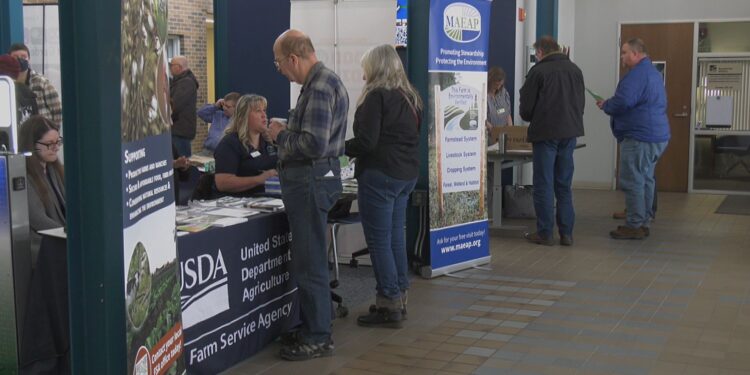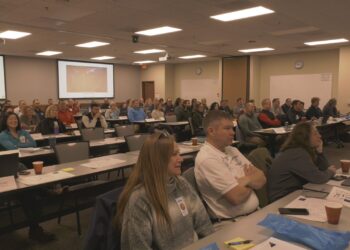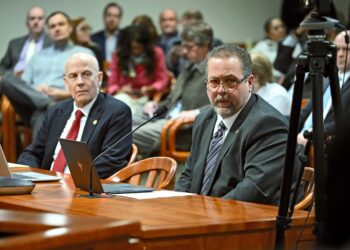ESCANABA, Mich. (WZMQ) – At Bay College on Tuesday, the Michigan State University (MSU) Extension brought approximately 100 farmers from across the U.P. together for the 2024 Agriculture for Tomorrow Conference.
“It’s directed towards farmers of all different sizes, both small and large, full-time and part-time farmers,” said MSU Extension Educator Frank Wardynski. “We’ve got a series of classes for specialty crops, field crop production and forage production, livestock, and a homestead track for people just trying to live off the land.”
The conference also featured information and resources from industry professionals, as well as discussions on important topics affecting many farmers right now.
“We’re really looking at the record-high beef prices and how farmers can capitalize on those prices,” Wardynski said. “In the forage and field crops, we’re talking about regenerative agriculture and how to improve soil health, those types of issues.”
Attendees received the latest knowledge and skills they can put to use on their own farms.
“Growing alfalfa is really why I’m here, to learn more about that and the nutrients that goes into growing alfalfa without dumping a huge amount of money in the wrong thing,” said farmer Casey Mattson. “I want to put the money towards the fields in the right direction. Soil samples, that kind of thing. Anything to benefit the alfalfa growth in my area.”
Mattson says he’ll also be able to use what he learned at the conference in his business.
“I own a feed store in Germfask, so the more knowledge that I can pass on to the consumers that come into the store is going to benefit me in the end,” he said.
Wardynski says the Agriculture for Tomorrow Conference equips attendees with the tools to create a better future for the region’s agriculture, consumers, and farmers.
“We’re not just the central part of the Upper Peninsula, this is the central part of agriculture here,” he said. “There’s a lot of crop production. Dairy production is more heavily in Menominee County, and then when you start moving father west and farther east, we don’t have as much agriculture. I think the real benefit is you get to have nearly 100 farmers being in one location, being able to talk about issues, and they’ll learn more from each other than they probably do from our classes today.”
The MSU Extension offers educational resources for farmers and those interested in agriculture. Click here for more information.










